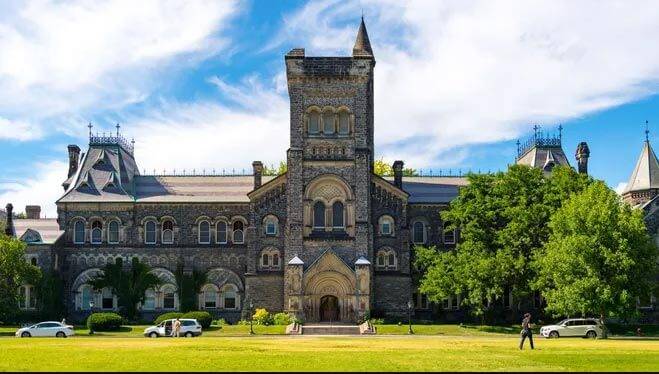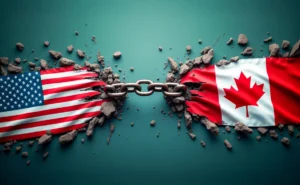Canada, eh?
On July 1, Canada Day, The Economist reported that over the last few months, global interest in moving to Canada has never been stronger. And it appears to have something to do with politics.
For Britons, Google searches for “move to Canada” peaked in the week following the Brexit referendum, when the United Kingdom voted to leave the European Union. For Americans, the number of these Google searches began to escalate on March 1, when Donald Trump won seven out of 11 primaries across the nation — and it’s now at an all-time high. Canadian immigration lawyers reported being flooded with calls from Americans desperate to leave.
“This has happened before. When George W. Bush was re-elected we had a high spike in calls,” Eddie Kadri, a lawyer from Ontario, told Global News. “Americans were angry and frustrated, but that subsided over time. There was a very small number that I experienced that actually applied for immigration and followed through.”
But what about attending college in Canada?
Moving up north for college isn’t an entirely new concept for Americans, but it has grown increasingly popular in recent years. USA TODAY reported a nearly 50% increase in the number of students enrolling at Canadian colleges between 2000 and 2011. Since 2011, more than 10,000 American students enroll in Canadian colleges annually, according to the Canadian Embassy in Washington. Just 15 years ago, only 2,300 Americans went to college in Canada.
Social media feeds are filled with young Americans claiming they’ll flee to Canada to escape the political frenzy at home.
Eighteen-year-old Maya Murthy is among these students. The recent high school graduate made a Facebook post urging her friends to prevent Trump — whom she referred to as a “solid piece of Cheeto dust” — from becoming president. “I mean, I’ll be safe in Canada, but you know, I’ll feel bad and everything,” she wrote jokingly.
Still, her joke does have some truth. Though raised in California, she has dual citizenship in the United States and Canada, and has always considered attending school up north. She applied to a number of Canadian schools, including McGill University and the University of Toronto, and will be a freshman at Toronto this fall.
While Murthy considered multiple factors — including academic statistics and the fact that Canadian college tuition is often significantly cheaper — she agrees that the difference in political climate influenced her decision.
“Canada is just so much more progressive as a country,” she said. “I don’t want to fall into the trap of being an American idiot that thinks Canada is a paradise because it has its own problems, especially with its indigenous peoples. But racism in Canada is not at the level it is in the United States. Canada took in Syrian refugees. [Prime Minister] Justin Trudeau’s cabinet is half-female and his defense minister is a Sikh man.”
Murthy believes Donald Trump helped to galvanize racism in the United States, causing people to publicly speak out about their once-veiled racist views. She sees the opposite effect in Canada. She has a fondness for Trudeau, and believes he helps the Canadian people to accept people of all races and backgrounds.
But that doesn’t stop her from worrying about the state of America while she is away, and even when she returns.
“I’ve told myself I’m safe, but obviously a lot of my friends and family will stay here, and so many of them are people of color or women or both. It’ll definitely be a little easier and safer for me for the next four years, but it doesn’t mean that I don’t care about my family, or gun control, LGBTQIA rights, or American politics. That’ll still be here.”
Source: Anjali Bhat / USA Today



